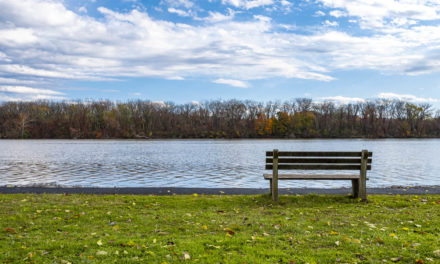Welcome to the final day of the shortest month of the year, AKA the last Tuesday in February.
Here’s a brain teaser for all you math geeks out there as to why 2023 is NOT a Leap Year:
The year must be evenly divisible by 4. If the year can be evenly divided by 100, it is not a leap year unless the year is also evenly divisible by 400, according to mathisfun.com. For example, 2000 and 2400 are leap years, but 1800, 1900, 2100, 2200, 2300 and 2500 are not.
The citation is here, which is actually a post about how old you are if you were born Feb. 29, which is pretty interesting if you’ve got a few minutes to spare.
Oh and while we’re on the topic of weird things related to the days in February, there’s no 31day of this month, but Feb. 30 AND Feb. 31 are imaginary dates that are sometimes used – according to Wikipedia, anyway – ” to make it clear regardless of context that the information being presented is artificial and not real data.”
Wrap your head around THAT, why don’t you? Or maybe it’s too early for going down philosophical rabbit holes?
Before we go any further here, I’d like to say a word about the weather. Or maybe a few words. Choice words, at that.
What IS THIS?
I just spent a few blissful days in Key West where it was 80+ degrees and sunny. Just fantastic and amazing. And to return to a winter storm warning that started basically an hour after I (safely, thank goodness) touched down on the Albany tarmac and will last through tomorrow night, bringing with it up to 10 inches of SNOW? This is just wrong. Very, very wrong.
Why do we live in this godforsaken place, when there are beautiful sun-filled islands with sandy beaches and…well, hurricanes. Yeah, there’s that.
Anyway, about the end of February. We’re winding things up on a rather serious note, as it’s Rare Disease Day, which occurs on the last day of the month – be it the 28th or the 29th – and is described as a “globally-coordinated movement on rare diseases, working towards equity in social opportunity, healthcare, and access to diagnosis and therapies for people living with a rare disease.”
The definition of a rare disease or disorder – at least here in the U.S., according to the Orphan Drug Act – is one that is life-threatening or debilitating and affects fewer than 200,000 Americans.
All told, there are more than 7,000 rare diseases – most of which have a genetic origin – impacting between 25 and 30 million Americans. They have no cure, can’t be prevented, and usually require complex treatments to manage.
There’s even a database of them, maintained by the National Organization for Rare Disorders (NORD), which exists in large part to help individuals who are struggling to figure what what’s wrong with them, and having difficulty getting an official diagnosis.
(As an aside, an orphan drug refers to a rare disease treatment that has been “orphaned” – in other words, discontinued- because there was not enough financial incentive to continue its development or production. Hence the existence of the Orphan Drug Act, which incentivizes drug development for rare diseases).
Some rare diseases you’ve probably heard of like cystic fibrosis or spina bifida. Others are far more obscure and even less frequently occurring than their rare brethren, like Alice in Wonderland Syndrome, Morgellons, and Kuru (AKA Laughing Death). These actually exist – honest.
Rare Disease Day is an opportunity to raise awareness about the plight of some unlucky individuals who – usually – by luck of the draw are suffering significantly. It’s also a good day to be thankful for your own health and to think about all the bounty you’ve got in your life…You’re awake. You’re walking around. Maybe you’ve got some aches and pains but are generally healthy?
You’re blessed.
We already dealt with the weather, and quite frankly, I don’t have a single other thing left to say about it. And so, on with the show.
In the headlines…
President Joe Biden has been traveling the country to tout the job creation boom his billions of dollars in clean energy spending will bring. But the cutting-edge companies he’s promoting face a struggle: hiring enough people to fill those jobs.
Over the course of several hours today, the nine Supreme Court justices will hear oral arguments in two cases challenging Biden’s $400 billion student loan forgiveness plan. A decision is not expected until later this year.
How and when the justices rule will also determine when payments on federal student loans will resume after a pandemic-related pause that has been in place for nearly three years.
Upwards of 100 people were already outside the courthouse on a cold and rainy evening yesterday, and groups will bus in many more as Biden’s student loan relief plan, a major campaign promise, goes before the justices.
The Supreme Court seemed poised yesterday to limit the scope of a federal law that adds two years of prison time to sentences for a variety of felonies if the defendant engaged in identity theft in the process.
Republicans in Congress moved closer to blocking changes to the District of Columbia’s criminal code, potentially setting up a politically charged veto fight with Biden as the party works to capitalize on fears of rising crime in the run-up to the 2024 campaign.
The Biden administration plans to leverage the federal government’s expansive investment in the semiconductor industry to make progress on another goal: affordable child care.
The Commerce Department today will announce that any semiconductor manufacturer seeking a slice of nearly $40 billion in new federal subsidies will need to essentially guarantee affordable, high-quality child care for workers who build or operate a plant.
The regulations will mandate that firms receiving incentives under the Chips and Science Act, passed last year, take steps such as building day-care facilities near new manufacturing sites, or giving workers money to pay the costs through existing local options.
The Biden administration announced a wide crackdown on the labor exploitation of migrant children around the United States, including more aggressive investigations of companies benefiting from their work.
A week after Biden traveled to Ukraine to pledge U.S. support in the fight to repel Russia, he has dispatched two senior cabinet members to redouble efforts to prop up the Ukrainian economy and to try to curb the Kremlin’s ability to skirt Western sanctions.
Rupert Murdoch, chair of the media empire that owns Fox News, acknowledged in a deposition that several TV hosts promoted the false narrative that the 2020 election was stolen from former President Donald Trump, and he could have stopped them but didn’t.
Hong Kong will stop requiring masks to be worn in public places, drawing to a close the prolonged Covid era that damaged its economy and standing in the world.
The city’s Chief Executive John Lee said the requirement will end outdoors and indoors, including public transit, but some high-risk premises including hospitals and elderly homes can still require people to wear masks.
Scientists and spy agencies have tried to determine where the coronavirus originated, but conclusive evidence is hard to come by and the nation’s intelligence agencies are split.
The House Democrats’ campaign arm is launching a new effort to link vulnerable New York Republicans to Rep. George Santos, with Democrats betting that the freshman congressman will be a major liability for the GOP in key swing districts next year.
Rep. Anthony D’Esposito , the first House Republican to call for Santos’ resignation, is now taking it a step further, introducing a bill that would prevent the embattled New Yorker from profiting off his campaign lies.
The new Siena poll found that 66 percent of New York voters across the state believe the Long Island Republican should resign from Congress. That’s up from 59 percent last month.
Santos was reportedly questioned by the U.S. Secret Service in a 2017 probe of international credit card fraud.
Santos lied to a Seattle judge about working for Goldman Sachs while speaking at a 2017 bail hearing for a “family friend” who later pleaded guilty to fraud in an ATM skimming scheme, according to an audio recording of the proceeding and court records.
Gov. Kathy Hochul dipped just slightly in the eyes of voters in February. New numbers from the Siena poll show the governor with a 46 percent favorability rating (43 percent unfavorable), compared to 48 percent (and 42 percent) last month.
Crime should be Albany’s top priority, said 36% of voters, followed by cost of living, 27%, and affordable housing, 13%, with public health, environment and racial justice in single digits.
Hundreds of thousands of SUNY and CUNY students are facing what appears to be an increasing likelihood of tuition hikes following testimony at a state budget hearing from leaders of the city and state college and university systems.
Many state lawmakers are pushing back against the proposed hikes and students say now is not a good time to raise rates.
The New York Association of Convenience Stores is launching a significant digital ad buy meant to halt Hochul’s proposal to increase the per-pack tax on cigarettes as well as ban flavored products like menthol cigarettes.
Union leaders, including some who were left feeling jilted by the governor’s executive budget, are still willing to give her more time to win their favor, but the battle over her chief judge nomination didn’t help matters.
State Senate Democratic leaders are seeking to close an apparent lobbying loophole for nominations to statewide positions that require confirmation by the Senate.
States would be barred from redirecting key Medicaid funds from local governments under a federal measure aimed by House Republicans at a provision in Hochul’s $227 billion budget plan.
New York state lawmakers are reportedly in preliminary conversations to delay the implementation of a system of publicly financed campaigns.
A Supreme Court decision overturning century-old New York gun regulations has produced scores of new lawsuits as jurists and citizens sort out what’s legal.
New York’s upstate-downstate division is longstanding and can take many forms. One of the newest iterations of this geographic split emerged earlier this month over electricity rates, amid the push for green energy.
New York City has detected more than 2,000 gas plumbing violations since a set of rules took effect in 2020 that were tailored to crack down on unlicensed work in that industry, an official in Mayor Eric Adams’ administration said.
Adams agreed to allow remote work for some city workers, a concession that recognizes the new realities of the workplace. But the precedent could prove to be costly as other unions eye additional compensation for employees who cannot work from home.
Community Board 1 says Adams isn’t understanding what they’re asking him to do to stop LGBTQ+ exclusion at the Staten Island St. Patrick’s Parade.
Former FDNY assistant chiefs who were demoted by Fire Commissioner Laura Kavanagh have filed a lawsuit demanding they and other chiefs affected by the recent shakeup in the upper ranks be reinstated.
A poorly designed street was responsible for the death of a woman whose bike collided with a box truck last month at a Brooklyn intersection, say the rider’s heartbroken relatives, who are suing the city for $100 million.
A pilot project to buy and install a single high-tech toilet in a park in each of the five boroughs could cost New York City taxpayers a whopping $5.3 million — despite the quintet of commodes selling for less than a million dollars in total.
New Yorkers have the longest commutes in the nation, according to a study of the most stressful cities to work in by business help site LLC.org. The site analyzed data from over 170 places with populations of over 150,000 to reach its final results.
A Starbucks barista fired after voting to unionize a Long Island City cafe has been rehired by the coffee company, which will also have to cough up $21,000 in backpay and penalties as part of a settlement for violating the city’s Fair Workweek Law.
Apartment rents fell in every major metropolitan area in the U.S. over the past six months through January, a trend that is poised to continue as the biggest delivery of new apartments in nearly four decades is slated for this year.
Trump’s support in the city’s wealthy political circles is waning, as 2024 rivals and potential candidates, including Nikki Haley and Mike Pence, make the rounds seeking campaign cash.
Adirondack Council Executive Director Willie Janeway, 59, will step down from his post on Sept. 15, after more than a decade as the face of one of the most prominent lobbying groups for the Adirondack Park.
State Police are investigating a horrific one-car crash on the Palisades Interstate Parkway early Sunday morning that left one person dead and the driver — an off-duty NYPD officer — in critical condition.
Police investigating the November disappearance of Samantha Humphrey confirmed that a body found in the Mohawk River Wednesday is the missing 14-year-old girl.
The owners, operator and landlord of the now-shuttered Saratoga Center for Rehabilitation and Skilled Nursing Care have agreed to pay back $7.16 million in false Medicaid claims in a settlement reached with the U.S. Justice Department and the state AG.
The Troy City Council will consider an ordinance that will allow city employees or contractors to enter homes to test for lead water pipes and to pay to replace the pipes when funds are available.
Elon Musk has suggested the U.S. media is racist against white and Asian people as he appeared to defend the creator of the “Dilbert” comic strip, which was recently dropped by several newspapers.
A Penguin Random House imprint said it won’t publish “Dilbert” creator Scott Adams’s coming book “Reframe Your Brain,” previously expected to be published this coming September.
A new study has found that erythritol, a zero-calorie sweetener that is popular in ketogenic diets, has been linked to strokes, heart attacks, blood clots and death.




